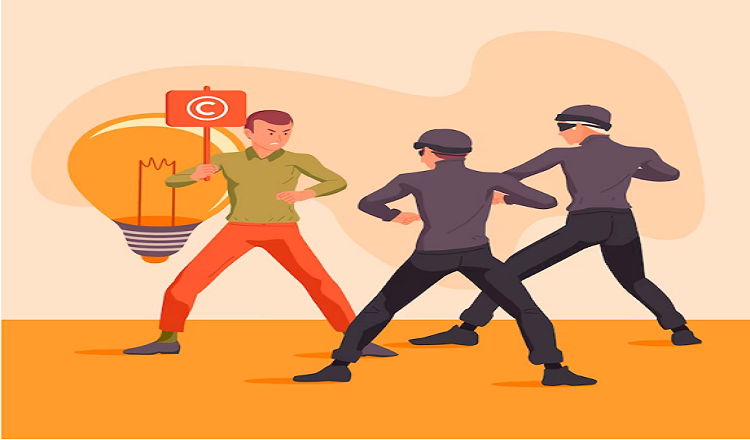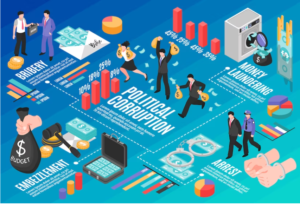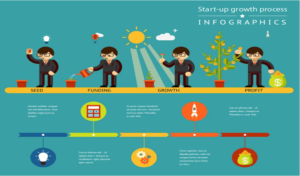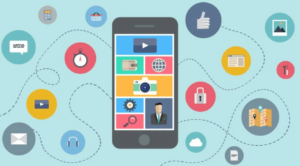The ripple effect of crime on society

Even though most people don’t think of technology when they think of farmland, advances in technology have had a big impact on how farming has changed in the United States. From precision farming to bioengineering, these advances have not only made farms more productive and efficient, but they have also had a big effect on the environment and the way food is grown.
Precision farming, for example, lets farmers use methods based on data to get the most out of their crops while wasting as little as possible. This is done with the help of sensors, drones, and other technologies that help farms keep an eye on the soil, track how their crops are growing, and even use fertilisers and pesticides with pinpoint accuracy. On the other hand, biotechnology has helped farmers grow foods that are more resistant to pests and diseases, which means they don’t have to use as many harmful chemicals.
As we continue to use technology to make our lives better, it’s important to know how these changes affect our society as a whole. When it comes to farming, technology has effects that go far beyond the farm. It has effects on everything from the environment to the economy. In this blog, we’ll talk about how technology has changed agriculture, with a focus on precision farming and genetics. We’ll also look at how these changes are affecting how we grow food.
Effects of Crime on the Economy
You can’t say enough about how much crime costs people and society financially. Crime not only costs money to the people who are hurt by it, but it also has big effects on companies, the government, and the economy as a whole. Some of the main costs of crime are the costs of medical care, repairs to damaged property, and legal fees. Some examples of indirect costs are lost work time, lower property values, and higher insurance rates.
Businesses also lose money because of theft, vandalism, and other types of criminal behaviour. Law enforcement, courts, and prisons are also big costs for the government, and they hurt poor areas more than other communities. Also, crime can make poverty and inequality worse because it tends to happen in low-income places, which leads to fewer economic opportunities and less investment. It is important to understand how crime affects the economy so that effective policies can be made to deal with these problems and lessen the bad effects that crime has on society.
Effects of Crime on People’s Minds
Crime can have long-lasting and deep effects on the minds of people, families, and communities. Crime victims often feel traumatised, scared, and violated, which can have long-lasting effects on their mental and emotional health. Families and groups can also feel a sense of loss, anger, and helplessness because of crime. Children and the elderly are especially sensitive to the effects of crime, which can be very bad for them. Also, people who have been affected by crime may have problems with their mental health, such as post-traumatic stress disorder, depression, or worry. To help people and groups heal and move on from the trauma of crime, it is important to deal with the psychological effects of crime through a variety of support services and therapies.
What Crime Does to Society
Crime has big effects on society. It hurts community trust and cohesion and breaks down social norms and ideals. Crime can have a lot of effects on a community, like making people afraid, suspicious, and tearing people apart. It can also make people less likely to believe institutions like the police and the government, and it can make already-disadvantaged groups even more isolated. Crime can also hurt the development of children and young people by exposing them to violence and illegal activity and making them more likely to skip school, drop out of school, and get involved in crime. To deal with the social effects of crime, you need a complete plan that looks at the causes of crime, encourages community involvement, and puts money into programmes for youth development.
Effects of Crime on the Law
The burden that crime puts on the criminal justice system can be seen in the high costs of law enforcement, court hearings, and putting people in jail. Crime has an effect not only on the people who are hurt, but also on the courts and people who are locked up. The justice system is being pushed to its limits by the rising number of criminal cases and the number of people in prison. Crime can also hurt civil freedoms and human rights, such as when it leads to racial profiling and the violation of privacy rights. To deal with the legal effects of crime, there needs to be a balance between the need for public safety and the need to protect civil rights, as well as a focus on prevention, rehabilitation, and restorative justice.
What Crime Does to Politics
Crime has a big effect on the way people talk about and make decisions about politics in the United States. The way people think about crime can affect how politicians make decisions. Politicians often use crime as a political tool to win support and get laws passed. Crime can also change the way people feel about the government, leading to more calls for law and order and more dependence on law enforcement. Using crime as a way to get ahead in politics can also have bad results, like racial profiling, police brutality, and the loss of civil freedoms. It is important to deal with the political effects of crime in a way that supports public safety and protects civil liberties, human rights, and civil liberties.
Conclusion
In the end, this piece looked at how crime affects society in the United States. It has talked about how crime affects people, families, companies, communities, and the government in different ways. Crime has a lot of effects on society that can last for a long time, from the money it costs to the emotional damage it can cause to victims. Also, it has shown how crime can change the way politicians talk and act, which can change the way people feel about their government.
To fix the way crime affects society as a whole, we need a complete plan that looks at the causes of crime, encourages community involvement, and puts money into programmes that help young people grow and develop. Also, criminal justice reform that focuses on prevention, rehabilitation, and restorative justice must be a top priority for lawmakers. Communities need to work together to help victims and make the world a better and more fair place to live. In the end, it is up to each person to take action to fix the problems caused by crime, so that everyone can have a better, healthier, and more prosperous future.
Read More You May Like:
- The relationship between drug and alcohol abuse and crime rates
- The psychology of crime: what drives a person to commit crimes?
- How technology is used to solve crimes
- How communities can effectively prevent crime through cooperation
- Examining the effects of trauma and social inequality on criminal behavior








